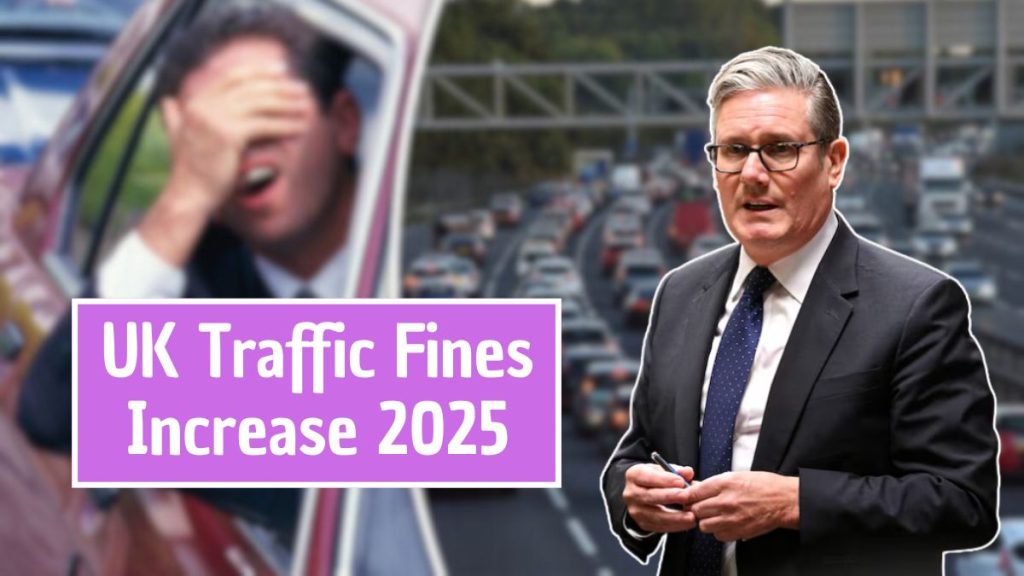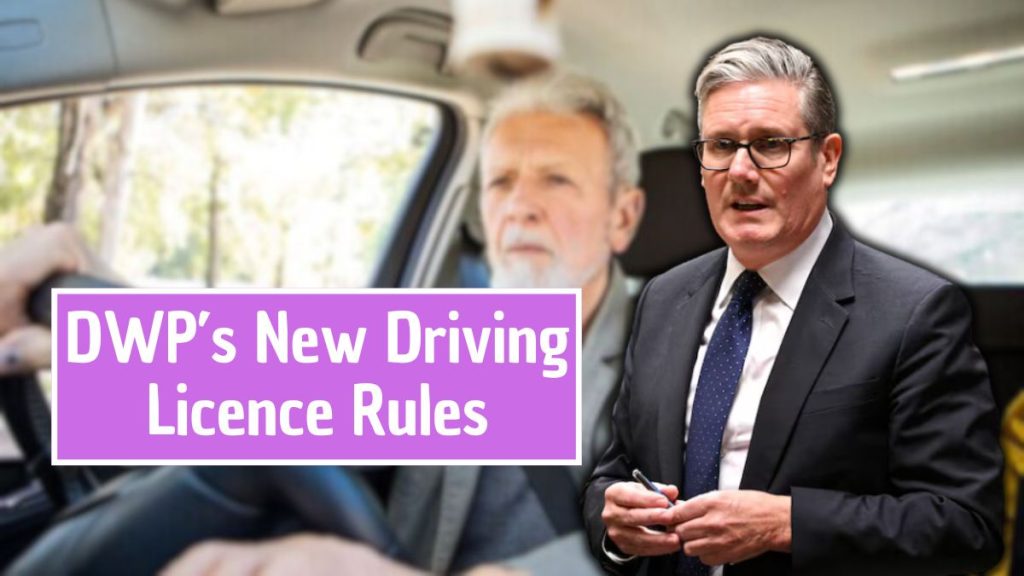Starting October 1, 2025, UK drivers aged 70 and over will face major new rules when renewing their driving licences. These updates, introduced by the Driver and Vehicle Licensing Agency (DVLA), are designed to balance road safety and independence, ensuring older drivers remain medically fit while continuing to enjoy mobility and freedom.
For many seniors, driving represents much more than transport – it’s about independence, dignity, and access to essential services. This makes the upcoming changes especially important to understand.
Why Are Driving Rules Changing for Seniors?

Driving can become more challenging with age. Research shows:
- Older drivers are disproportionately represented in serious road accidents.
- Age-related issues like declining eyesight, slower reflexes, and health conditions such as diabetes or heart disease increase risks.
- The government argues that additional medical oversight is needed to keep both drivers and the public safe.
The goal isn’t to take away independence but to ensure fitness to drive matches modern traffic conditions.
Key Licence Renewal Changes for Over-70 Drivers
From October 2025, the process of renewing a licence after age 70 will undergo significant updates.
Medical Fitness Must Be Verified
Previously, drivers self-declared their medical fitness. Now, drivers must provide medical reports from their GP or an approved doctor, particularly if they suffer from conditions like epilepsy, diabetes, or cardiovascular disease.
Mandatory Vision Tests
Proof of an eye test within the last two years will be required. Drivers must show evidence from an optician that they meet the legal eyesight standard of reading a number plate from 20 metres.
Shorter Licence Terms
While licences are normally renewed every three years, the DVLA may now issue one-year licences if health concerns are identified, requiring annual reviews.
Practical Assessments at Age 65+
Drivers aged 65 and above may be asked to undergo a short driving test focusing on hazard awareness and reaction times. This isn’t a full test but ensures alertness and safety in modern road conditions.
Practical Tips for Senior Drivers
To prepare for the new rules and stay safe on the road, seniors should:
- Have regular eye tests (every 1–2 years).
- Stay physically active with exercises that maintain mobility.
- Take refresher driving courses for updated road knowledge.
- Avoid risky driving conditions, such as poor weather or nighttime driving.
- Consider in-car technology like parking sensors or automatic braking to improve safety.
Alternative Transport Options
For those who may eventually find driving too challenging, several alternatives are available:
- Public transport – discounted senior fares make this affordable.
- Community shuttle services – many councils provide transport for seniors.
- Ride-hailing apps – convenient door-to-door options like Uber or Bolt.
- Family support – arranging shared rides with relatives.
Legal Responsibilities for Families
Families and caregivers also play a role. If an elderly loved one’s driving seems unsafe, relatives can:
- Discuss concerns openly.
- Encourage eye tests and medical reviews.
- Report serious safety issues to the DVLA, which can trigger an official health review.
International Comparisons
The UK is not alone in tightening senior driving rules.
- USA: Many states require older drivers to renew more often or pass vision tests.
- Canada: Ontario requires drivers over 80 to complete vision, knowledge, and group education sessions.
- Australia: Seniors face annual medical checks, with some regions mandating on-road tests.
This shows that stricter senior driving checks are part of a global safety trend.
Step-by-Step Guide: Renewing a Licence After 70
- Check your renewal date – marked on your current licence.
- Book an eye test – make sure it’s within two years of your renewal.
- Gather medical documents – contact your GP for reports on ongoing health conditions.
- Apply for renewal – online via the DVLA website or by post (form D46P).
- Prepare for possible assessments – such as a practical hazard test or annual renewal if health issues exist.
What Happens If You Don’t Comply?
Failure to follow the new rules carries serious consequences:
- Fines of up to £1,000.
- Suspension or revocation of your licence.
- Legal prosecution if found driving while medically unfit.
Compliance ensures both personal safety and the safety of other road users.
Why These Rules Matter
For seniors, driving remains a lifeline to independence. However, ensuring drivers are fit to operate vehicles protects not only the individual but also other road users, pedestrians, and communities.
By preparing early—through medical check-ups, vision tests, and staying aware of requirements—seniors can continue to enjoy driving well into their later years.
FAQs: UK Senior Driving Rule Change 2025
Q1: When do the new rules take effect?
A: The new senior driving licence rules start on October 1, 2025.
Q2: What age group is affected?
A: All drivers aged 70 and above, with some checks beginning at 62 and assessments at 65.
Q3: Will I have to take a full driving test again?
A: No, only a short assessment may be required from age 65, focusing on awareness and reaction time.
Q4: Do I need a doctor’s report to renew?
A: Yes, medical fitness must be verified through a GP or approved doctor’s report if you have certain conditions.
Q5: What if I fail to provide the required documents?
A: You could face fines, licence suspension, or revocation until proof of medical fitness is provided.














